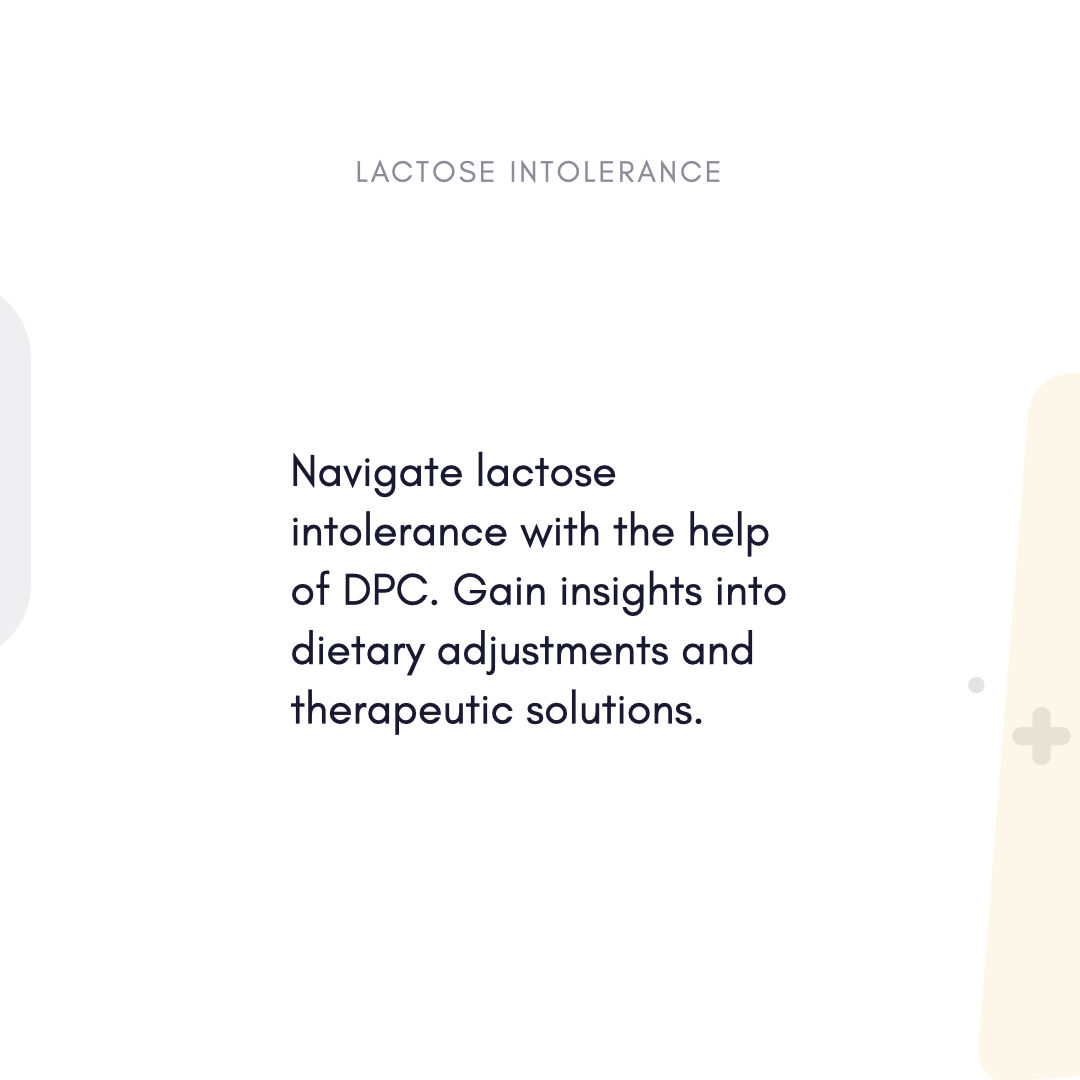Lactose Intolerance and Direct Primary Care (DPC): Personalized Care for Digestive Wellness
You are not alone if you have ever felt bloated, gassy, or crampy after consuming dairy. A digestive disorder where the body cannot break down lactose—the sugar in milk products—over 68% of adults worldwide suffer with lactose intolerance. Although not life-threatening, unmanaged symptoms can disrupt daily life and lead to nutritional deficiencies. Direct Primary Care (DPC) combines customized dietary plans, affordable testing, and continuous support—free of insurance hurdles—to provide a patient-first approach.

Learning About Lactose Intolerance
Lactose intolerance results when the small intestine produces too little lactase, the enzyme needed to digest lactose. Typical triggers include:
- Genetic predisposition: More common in Asian, African, and Indigenous populations.
- Aging: Lactase production naturally declines over time.
- Gut damage: From infections, celiac disease, or chemotherapy.
Symptoms to manage:
- Bloating, gas, or diarrhea within 30 minutes to 2 hours of dairy intake.
- Stomach cramps or nausea.
- Rare cases: Fatigue or headaches.
Long-term risks of untreated lactose intolerance:
- Calcium or vitamin D deficiencies.
- Osteoporosis or bone fractures.
- Social anxiety related to food.
How DPC Transforms Lactose Intolerance Management
Under the membership model known as Direct Primary Care (DPC), patients pay a monthly fee—usually USD 50–USD 150—for unlimited access to their provider. For lactose intolerance sufferers, this means no rushed visits, no surprise bills, and care tailored to your digestive health goals.
Customized Food and Lifestyle Strategies
Following evidence-based protocols, DPC providers offer:
- Lactose tolerance testing: Elimination diets at transparent cash rates (USD 50–USD 150) or hydrogen breath tests.
- Customized meal plans:
- Replace dairy with calcium-rich alternatives (leafy greens, almond milk).
- Add probiotics or lactase enzymes (e.g., Lactaid) to aid digestion.
- Nutritionist support: Virtual meal planning visits at discounted rates.
Cost-Effective, Transparent Treatment
DPC clinics reduce expenses by:
- Same-day appointments to manage unexpected flare-ups or accidental dairy exposure.
- Discounted lab tests: Vitamin D or calcium levels under USD 20.
- Preventive focus: Avoid USD 200+ specialist fees for dietary guidance.
Ongoing Monitoring and Support
Having 24/7 access to your doctor allows you to:
- Track symptoms using app-based logs to identify triggers and improvements.
- Screen for related gut conditions like celiac disease or IBS.
- Implement bone health plans: Calcium and vitamin D supplements to prevent deficiencies.
Key Advantages of DPC for Lactose Intolerance Patients
- Dietary precision: Customized menus matching your lifestyle (vegan, ketogenic, or dairy-free).
- Cost savings: Avoid specialist fees for ongoing dietary advice.
- Holistic focus: Address gut health and nutrient gaps beyond lactose avoidance.
DPC’s Personalized Lactose Intolerance Management
DPC tailors treatment to your unique needs:
- Dietary Adjustments and Alternatives:
- Custom meal ideas using almond milk, coconut yogurt, or cashew cheese for lactose-free dishes.
- Calcium-rich substitutes for daily needs: Sardines, broccoli, or fortified juices.
- Label-reading guidance to find hidden lactose in processed foods (bread, medications).
- Symptom Relief Strategies:
- Lactase enzyme supplements (e.g., Lactaid) timed with meals.
- Probiotics like Lactobacillus acidophilus to improve gut tolerance.
- Emergency OTC options for accidental exposure: Simethicone or anti-diarrheal meds.
- Long-Term Wellness Protection:
- Affordable DEXA scans for high-risk patients to monitor bone density.
- Annual lab checks for B12, calcium, and vitamin D levels.
- Gut health improvements: Screen for IBS, SIBO, or celiac disease if symptoms persist.
Real-Life Success Stories
- Case 1: Sophia, 34, eliminated bloating and tiredness after her DPC doctor diagnosed lactose intolerance and developed a vegan meal plan with fortified foods.
- Case 2: Raj, 52, avoided osteoporosis with twice-yearly vitamin D tests and DPC-guided calcium supplements—all for less than his past co-pays.
Frequently Asked Questions: DPC and Lactose Intolerance
- Q: Can lactose intolerance develop suddenly?
A: Yes—due to aging, medications, or stomach issues. Same-day DPC testing helps identify the cause.
- Q: Is DPC reasonable for ongoing dietary management?
A: Absolutely! Members save on labs, nutritionist visits, and supplements—often under USD 100/month.
- Q: If I need a gastroenterologist, what then?
A: DPC doctors arrange endoscopies or advanced testing at agreed cash rates.
Why DPC Wins for Lactose Intolerance Sufferers
DPC’s direct patient-provider model removes insurance barriers to deliver:
- Personalized education: In-depth guidance on label-reading, cooking techniques, and supplements.
- Preventive focus: Maintaining nutrient levels and bone health over time.
- Flexible adjustments: Modify diets as your tastes or symptoms evolve.
Take Control of Your Gastric Health Right Now
Lactose intolerance need not limit your diet or joy. With DPC, you have a partner who offers affordable testing, customized meal plans, and lifetime support free of insurance complications.
- From bone health protection to enzyme guidance, DPC helps you enjoy food freely and flourish.
- Transparent pricing—no hidden fees or mark-ups.
- 24/7 access to adjust plans during accidental dairy exposure.






